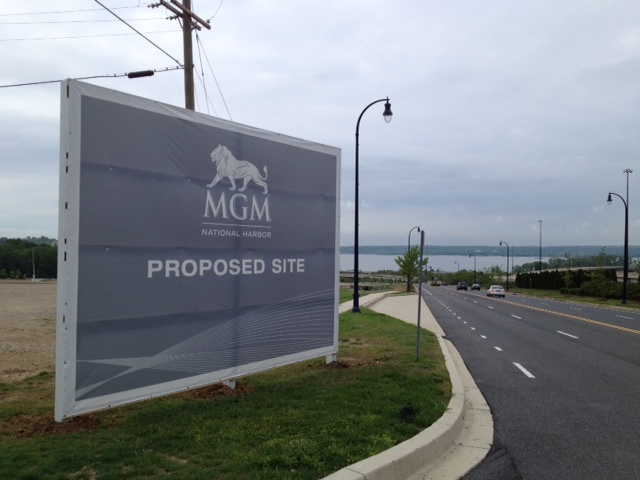
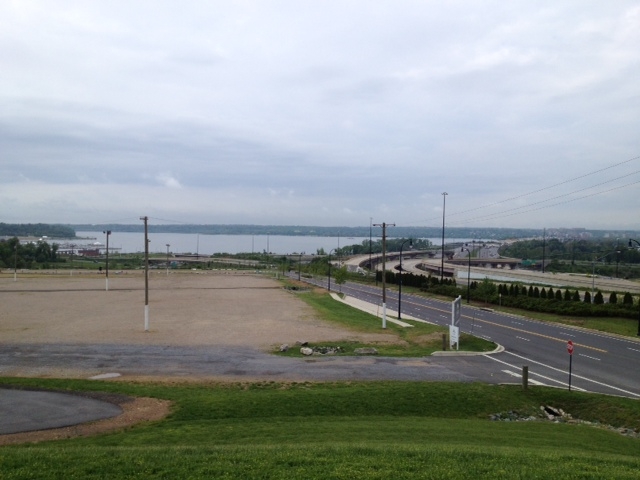
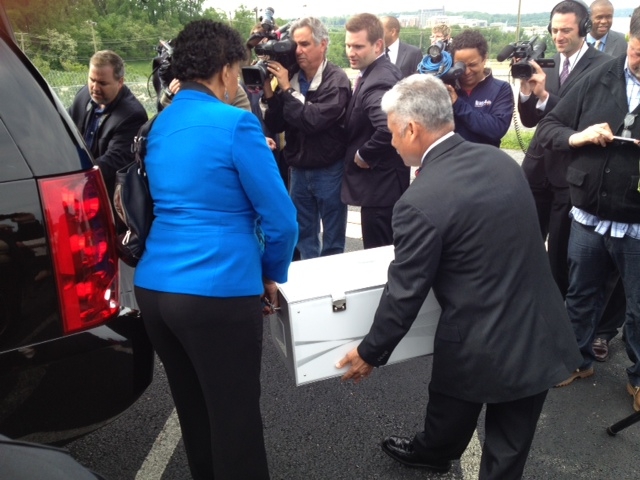
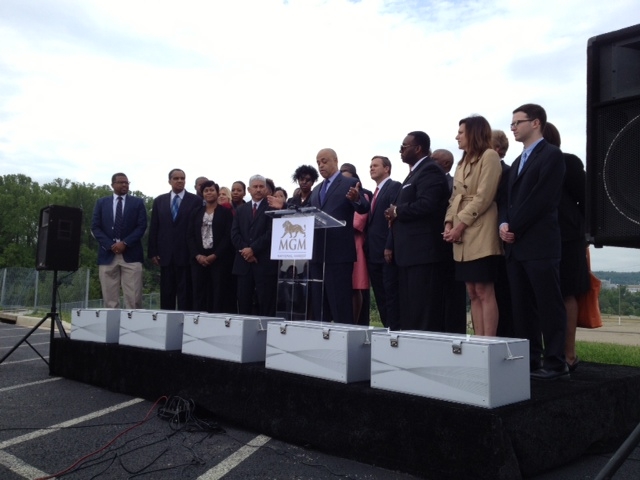
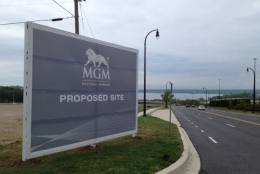


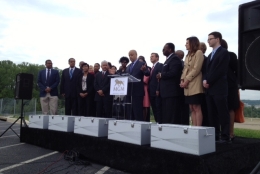
On a hill overlooking National Harbor, the future site of Tanger Outlets in the rear view, officials with MGM Resorts International and The Peterson Cos. formally launched on Thursday their bid to build a casino-resort in Prince George’s County.
They loaded lockboxes of case files into a black GMC Yukon XL and left for Baltimore, home to Maryland’s Video Lottery Facility Location Commission, getting a jump the Friday deadline to submit responses to the 110-page request for proposals.
Penn National Gaming Inc. also has served notice that it will respond to the RFP, likely for a casino site at Rosecroft Raceway. There may still be others that vie for a Prince George’s casino. But MGM is clearly the favorite, given its reputation, its location and its plans for an $800 million resort — rather than just a stand-alone gaming facility.
Details of any casino bids are kept strictly confidential, at the direction of the location commission. The response contains renderings, traffic studies, gaming plans, and details of the food and beverage service, entertainment and employment.
MGM National Harbor will create a “world-class resort that respects the history and culture of Prince George’s County, while meeting the needs of the marketplace,” said Lorenzo Creighton, the company’s president and chief operating officer.
It will be a resort that “just by happenstance will have a casino in it,”said Jon Peterson, senior vice president of The Peterson Cos, which has owned the National Harbor property for 16 years.
“This is an opportunity that recently presented itself and we’re going to take advantage of that opportunity,” he said.
MGM and Penn National fought a bitter, $90 million public relations battle last year as Maryland voters were asked to decide whether Prince George’s should get a casino, the state’s sixth, and whether the state’s existing slots parlors should have table games.
Penn National, which owns Hollywood Casino at Charles Town, W.Va., sought to kill the referendum to protect its market share. It lost, but later threatened legal action over the “constitutionality of the process.” No lawsuit has been filed.







